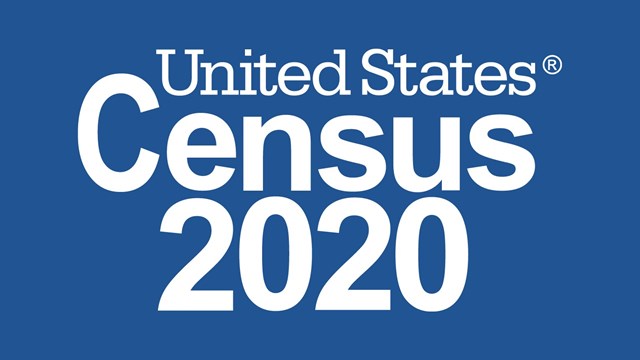Even before the economic meltdown and the media storm swirling around the thievery of money men like Bernie Madoff, financial mismanagement and fraud were destructive problems for many co-op and condo owners.
A co-op or condo is a major investment and for many people—it is their largest investment. Residents expect board members and other building management to take their fiduciary responsibility seriously and act in good faith as the caretakers of those investments. While the vast majority of managers and board members want nothing but the best for their communities, not all management personnel are beyond reproach. Because of this, residents need to know their risks for being fleeced, and how to manage those risks through checks and balances that will ensure transparency and prevent fraud.
Spotting Fraud
Certain things will make a building or HOA more vulnerable to fraud, such as a concentration of too much power in too few hands. When the board is controlled by a small minority, crooked activity is not only likelier to happen, it’s easier for thieves to get away with their crimes.
Along the same lines, if only one person is involved in approving expenditures, paying bills, cutting checks for vendor services and other such transactions, it means the building is only a person away from things going amiss. An obvious way to separate tasks and ensure some accountability is by hiring a property manager to handle operations. Management companies separate tasks through their own checks and balances systems. They’re also staffed with trained and licensed people, working for a firm that’s bonded and insured.
“Having a management company is a great separation, rather than a small board controlling finances, with one or two people controlling funds,” says Scott Seger, owner of Forth Group Management, in Chicago. “With a management company, there’d have to be collusion between people in order for fraud to happen.”
Preventing fraud is partly about recognizing when something appears suspicious. Things that count as fraud in the legal sense aren’t always strictly cash-related. For example, board members cannot vote to approve contracts with anybody they know personally without disclosing that relationship to the board. Property managers can’t funnel projects to a contractor with whom they have a secret agreement to trade projects for free remodeling work at their house.
Be Vigilant
A good manager cares for the interests of the community and informs board members of their proper roles, especially if they seem to not be clear on those duties, or if they begin to overstep their authority. An informed, knowledgeable, active board is the ideal. A good way to create a vigilant board is to bring more residents into the process, through involvement as board members or through involvement on board committees.
“The more professionals you have involved, the less chance there is for problems,” Seger says. “I’ve seen elections with board members trying to get their friends on the board, or trying to keep the board under the control of friends.”
A building whose board doesn’t have a regular audit done of the financial records is looking for trouble. And self-managed buildings are more susceptible to fraud, compared to the barriers in operations that a property management firm provides. Lax oversight of operations by board members also can be problematic.
“When you have an accredited, insured management company, you have greater oversight and fraud is less likely to happen,” says Michael Daniels, CPM, chief operating officer of Skokie-based Cagan Management.
An obvious way to provide transparency in the finances is to have them audited, at least yearly. Perhaps even more important, board members should read monthly financial statements and pay attention to what is being done with the building’s finances. If given the chance, an unscrupulous person will figure out ways to make the ledger appear balanced, when the building really is falling behind due to theft.
A lack of segregation of management duties is very dangerous, says Donald “Chip” Swinarski, a certified public accountant and the owner of Swinarski & Co., P.A., in Lake Worth, Florida. “I’ve even seen things go awry with the Christmas fund,” he says.
Rather than enabling one employee to control the books, have one person prepare a vendor payment, another authorize it and yet another person sign the payment. A clear separation of duties should apply to all building accounts, however small.
Board members have a fiduciary responsibility to protect the interests of the community. That means as board members, they no longer have the luxury of living obliviously in a community managed by others; they ARE the managers. And managers must always be vigilant.
But of course all residents must beware of the crooks, since the success of all their investments in property in the community are inextricably linked.
A board member or managing agent might suspect that the building’s finances are being mishandled by noticing some obvious warning signs. One major sign is the lack of a paper trail.
“All the sudden the bill is misplaced or the bank statement is delayed,” Daniels says, noting that delaying something that should be easily available is a red flag.
Another telltale sign can be when there’s an obvious lack of transparency with the management team. If actions are being taken on behalf of the property, which require votes of the board but board meetings aren’t being held, residents should dig deeper to see what’s what. Or if one particular contractor keeps lucking out and getting all of the big construction jobs that are done for the community, without an open bidding process, residents should speak up and find out why.
Regular monthly meetings of the board should occur and be open to residents, and that’s when business decisions for the community should be made. Bids for contracts above a set monetary threshold (sometimes outlined in the building’s governing documents), must be reviewed and voted on after an open bid process.
Fighting Apathy
Being vigilant starts with knowing what to be on the lookout for; the distinctions aren’t as clearly etched as they might appear at first. After all, what is the legal difference between fraud and incompetence? Fraud is a crime and it involves willfully deceiving another, for one’s own gain. Incompetence, on the other hand, often means the individual suspected of malfeasance simply wasn’t properly trained.
Some shady practices, though, might not add up to fraud, but are still undesirable and not helpful to the building. Residents buying gift cards for employees is not advisable. When individual unit owners are giving such gratuities to employees, who are simultaneously doing repairs (on the building’s time and sometimes with the building’s materials) on the unit owner’s apartment, and perhaps some of the fixes are repairs that the owner should be hiring someone else to do, is just one example of how fast things can go sideways when tips come into the picture.
Before you know it, unit owners feel obliged to give cash cards or other gratuities to building personnel for repairs to their apartments, regardless of the situation. It becomes a pay-to-play system. Who you know and how well you know them becomes all-important.
Similarly, when a board member or two tries to wrest control of the board, residents need to take notice and act. Through tactics such as not quickly replacing a board member who’s resigned, or by replacing him with a buddy, some board members will seek to monopolize power in the ruling group. That’s who a person knows on the board becomes too important to be healthy for the overall interests of the community.
Apathy on the part of residents, who don’t take their community’s operations seriously enough to even attend the annual meeting, is a common problem. With no one keeping an eye on what’s happening in board meetings, and few people scrutinizing the annual report or the monthly financial statements for the building community, evil doings sometimes can go undetected long enough for the community to take a hefty loss before the fraud is discovered.
Lack of regular scrutiny of operations by residents is partly why safeguards against fraud and other crimes are so important. A solid paper trail must be created, to start.
Often, the property management company will be the signer on checks from building operating accounts. But the reserve account should be more closely guarded. Transactions involving the reserve account should require signatures of at least two board members. It’s also recommended that the vast majority of the building’s funds should be held in the reserve account, to limit the amount of money that might be taken in a scheme. Operating costs should not be paid from the reserve fund.
Reviewing financial statements is an important task that board members should never fail to complete. And doing so in a timely manner is half the trick. In this case, “timely” means within 10 days of the statement being issued. Simply put, the more days that pass between reviews of the statements by board members, the more time thieves have to get away with their crimes.
A building’s management team can protect the community’s assets from fraud by requiring the signatures of at least two board members on all checking accounts. Separation of duties, such as when the person who approves payment of a bill should never also be the same person paying the bill, must be maintained. The association’s bookkeeper should also not be in charge of balancing the building’s checkbook.
Even small accounts must be watched. Building-issued credit cards can be abused by employees who add a purchase or two for their own use each time they fill up the company truck. Those small purchases amount to big losses.
In addition to ensuring that the credit card account never exceeds a predefined spending limit, board members should check purchases made on the card to see that it’s all legitimate and for the building’s needs. Someone should be reviewing the bank statements for the credit card and comparing those statements with receipts to make sure they match.
When it comes to financial transactions within the building community, plastic and checks rule. The building community should never accept cash payments. When cash is on hand, there’s too much opportunity for criminal activity.
When Fraud is Found
If evidence of financial mishandling is uncovered in a building, it’s not always followed by a criminal investigation. Often such crimes are worked out in-house, with the association coming to a settlement agreement through which the wrongdoer agrees to restitution, so that everyone can avoid the lengthy and costly judicial system. Besides, making a case against someone, even when the person is thieving, isn’t always as easy as it looks.
“You can find an error or irregularity, but it’s difficult to prove intent,” Swinarksi says.
But if you see multiple checks endorsed for the same company or person and it seems fraudulent, take the information directly to the board, and then if needed, to the building’s insurance company.
Sometimes a special audit of the building’s finances is needed to determine if something is truly amiss. It could be a small price to pay to avoid a huge headache.
Jonathan Barnes is a freelance writer who regularly contributes to The Chicagoland Cooperator







Leave a Comment